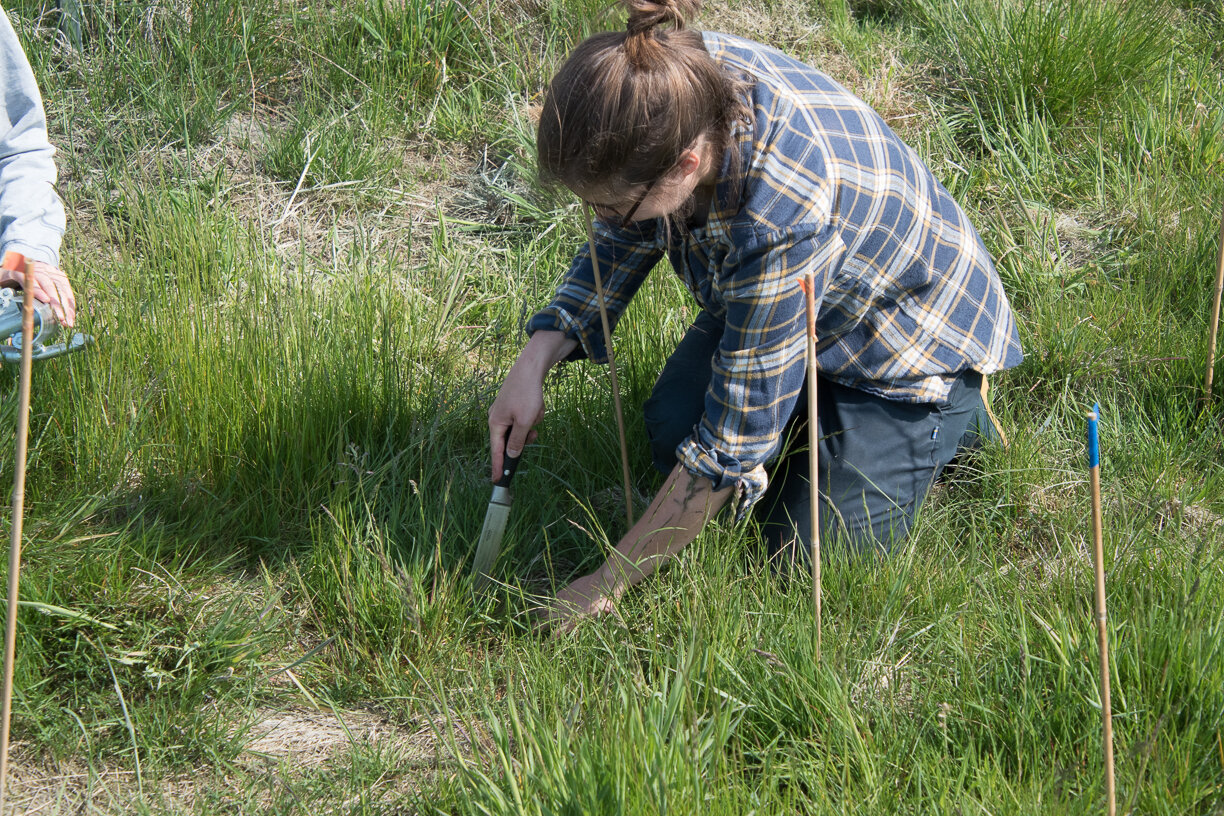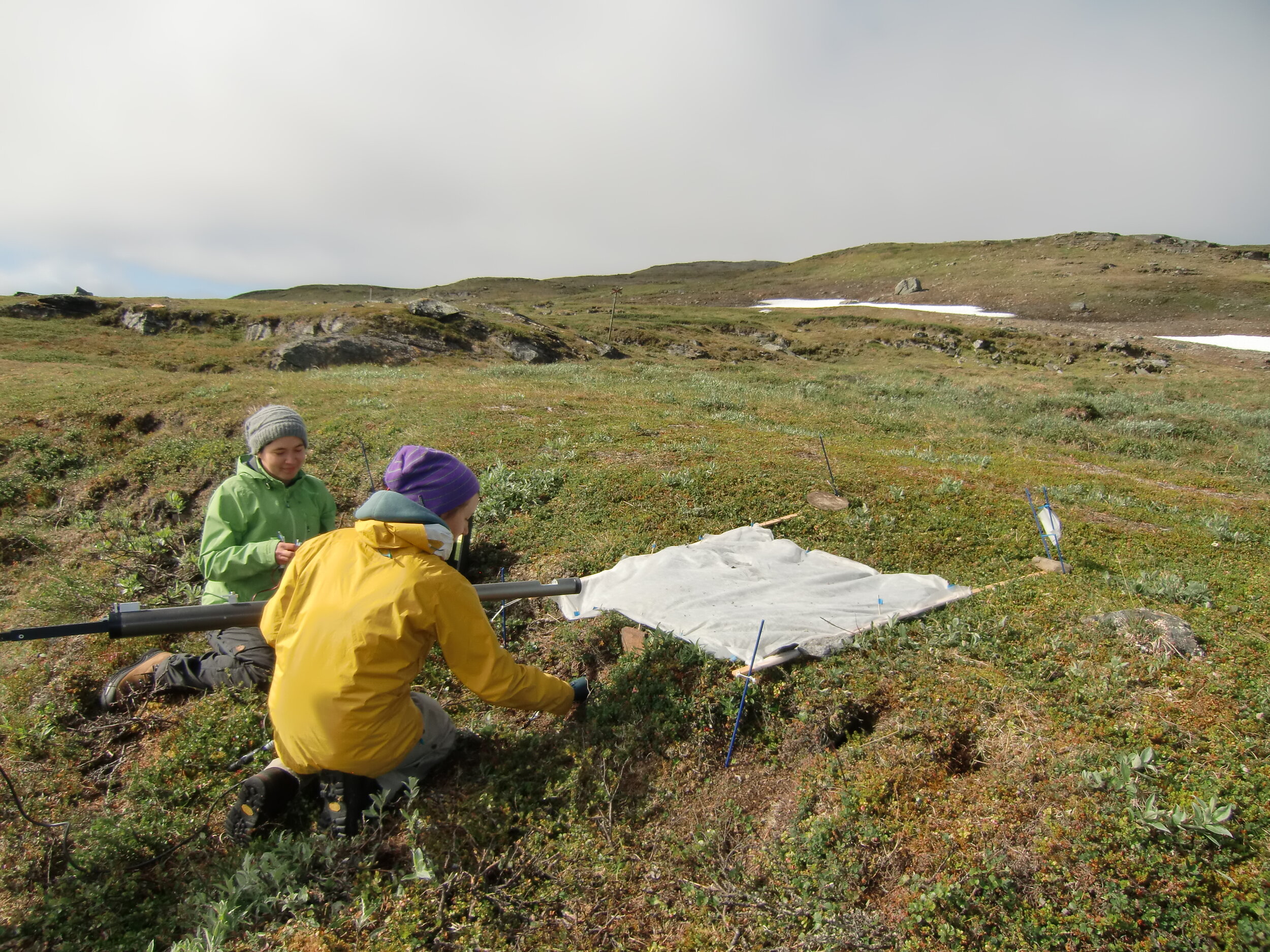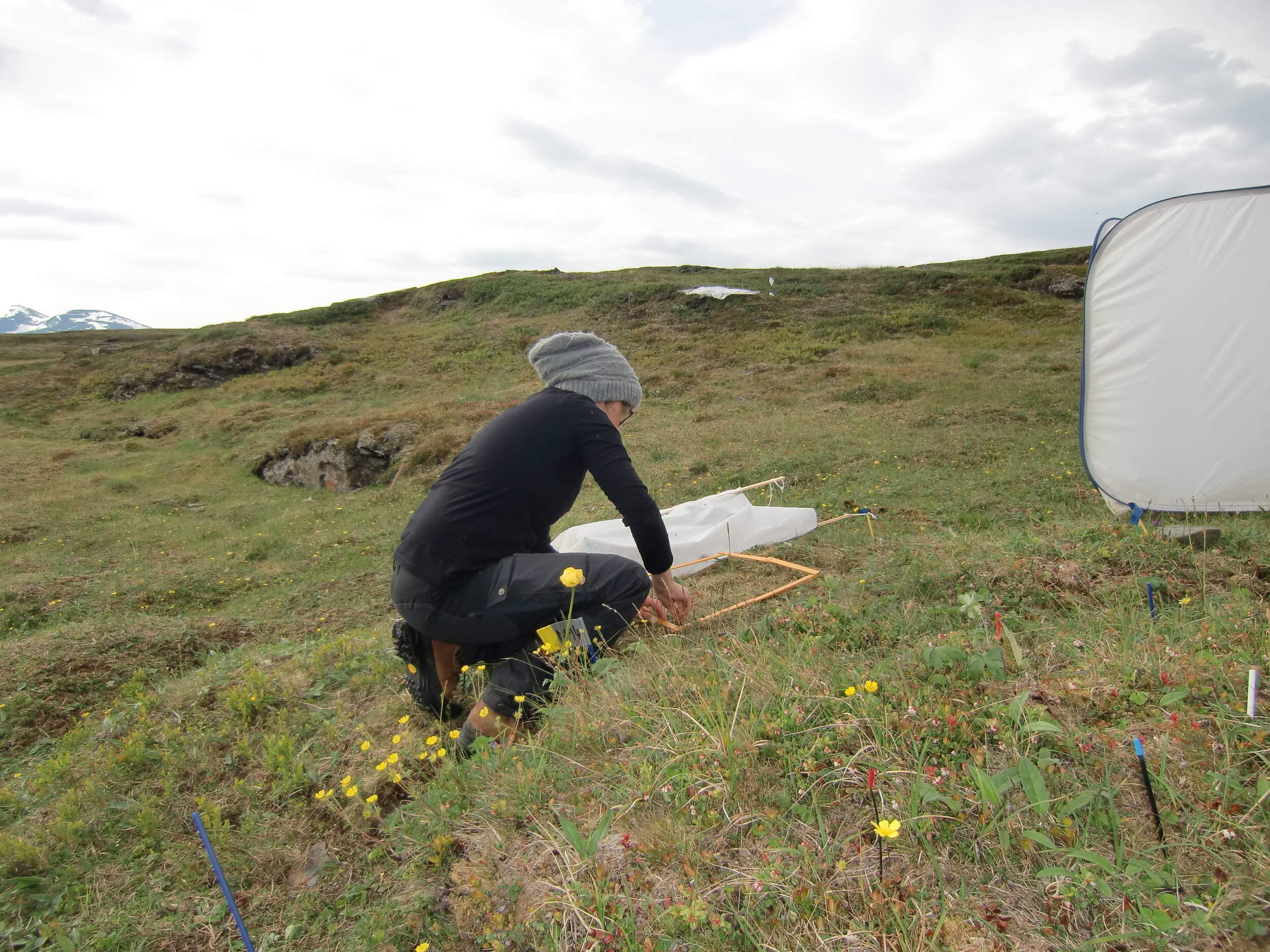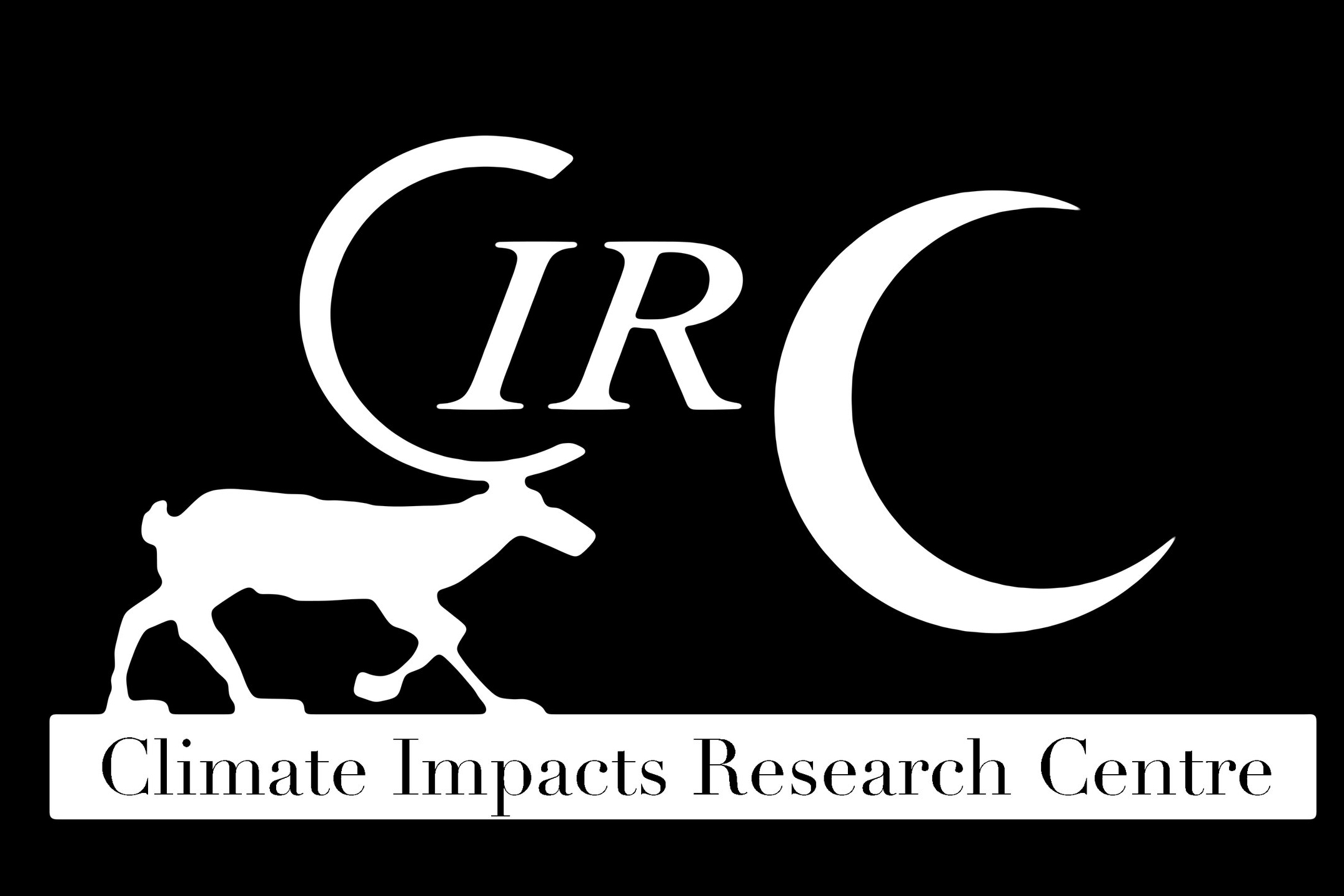Sarah Schwieger
(Postdoctoral fellow)
Climate Impacts Research Centre
Department of Ecology and Environmental Sciences
Email: sarah.schwieger@umu.se
Umeå University Profile
ORCID iD: 0000-0002-6206-7150
Research Summary
I am plant ecologist with a strong focus on belowground ecology. I am studying the effects of climate change on the decomposition on a regional (arctic) to global scale. In a future warmer environment, it is thought that microbes become more active and break up biomass quicker and more carbon is released into the atmosphere in form of CO2 and methane. However, climate change is a bit more complex than that, and the problem is that we don't have a clear idea of how all the different factors that are changing with climate warming will interact and affect the different stages of decomposition.
The Arctic tundra stores large amounts of carbon in its soils, twice as much as is present in the atmosphere. The Arctic region is warming three times as fast as the rest of the planet. Releasing the stored carbon in the form of CO2 and methane adds to global warming and affects not only people in the Arctic, but around the world. My work aims to understand how decomposition is affected by the many factors that change with climate warming, such as temperature, precipitation, and plant species composition.
The Tea Bag Index (TBI) can help us shedding light on these important questions. Across the world, standardized methods are used in climate change experiments, such as ITEX open-top chambers (OTC’s). I am working on a synthesis of decomposition data and their drivers obtained with the TBI and the use of OTC’s, which allows us to easily collect data on different decomposition stages and perform large-scale comparisons over global scales.
Supervisors
Ellen Dorrepaal https://www.arcticcirc.net/researchers/ellen-dorrepaal
Judith Sarneel https://www.umu.se/en/staff/judith-sarneel/
Current Projects
Photos From the Field



Sarah Schwieger’s Publications
View publications on DiVA or Google Scholar or ResearchGate





